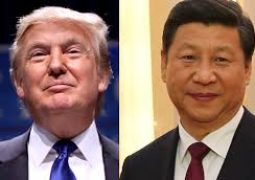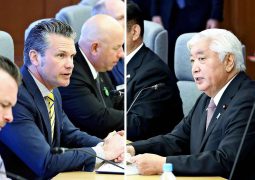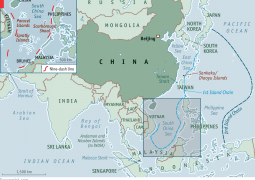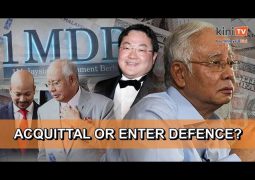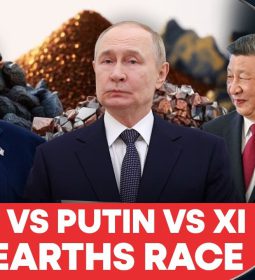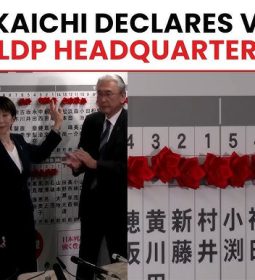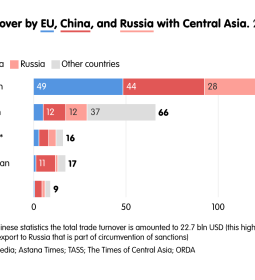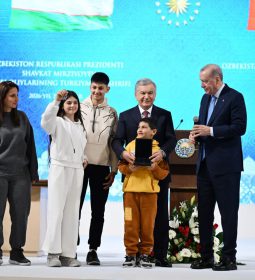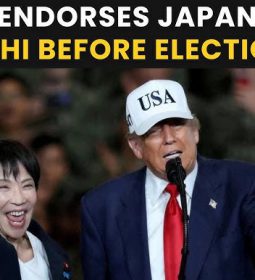US slashes aid to Afghanistan after Pompeo visit to Kabul
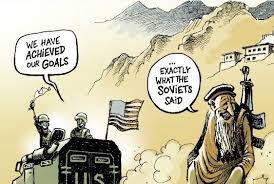
Mathew Lee
The Trump administration is slashing $1 billion in assistance to Afghanistan and threatening further reductions in all forms of cooperation after the country’s rival leaders failed to agree on forming a new government.
The decision to cut the aid was made on Monday by Secretary of State Mike Pompeo after he made an unannounced, urgent visit to Kabul to meet with Ashraf Ghani and Abdullah Abdullah, the rival Afghan politicians who have each declared themselves president of the country after disputed elections last year. Pompeo had hoped to break the deadlock but was unable to.
In an unusually harsh statement, Pompeo slammed the two men for being unable to work together and threatening a potential peace deal that could end America’s longest-running conflict. The U.S. has been the prime backer of the Afghan government since it invaded the country in 2001 and overthrew the Taliban after the 9/11 attacks.
“The United States deeply regrets that Afghan President Ashraf Ghani and former Chief Executive Abdullah Abdullah have informed Secretary Pompeo that they have been unable to agree on an inclusive government that can meet the challenges of governance, peace, and security, and provide for the health and welfare of Afghan citizens,” he said.
Pompeo said the U.S. was “disappointed” in both men and their conduct, which he said had “harmed U.S.-Afghan relations and, sadly, dishonors those Afghan, Americans, and coalition partners who have sacrificed their lives and treasure in the struggle to build a new future for this country.”
Pompeo said their inability to work together posed a “direct threat” to U.S. national interests and that the administration would begin an immediate review of all its support programs for Afghanistan, starting with a reduction of $1 billion in aid this year. He said it could be reduced by another billion dollars in 2021.
“We have made clear to the leadership that we will not back security operations that are politically motivated, nor support political leaders who order such operations or those who advocate for or support parallel government,” Pompeo said.
Speaking to reporters aboard his plane on the return flight home, Pompeo said he was hopeful Ghani and Abdullah “will get their act together and we won’t have to” cut the assistance. “But we’re prepared to do that,” he said. He defended his written statement from interpretations that it is overly harsh saying it “is neither hopeful nor threatening. It is factual. These are the expectations that we have.”
Pompeo, who after leaving Kabul met with a senior Taliban official in Qatar, also said Ghani and Abdullah were acting inconsistent with agreements they made to support a U.S.-Taliban peace agreement signed last month. That deal called for intra-Afghan peace talks to begin within 10 days, by March 10, but they have not begun. Ghani and Abdullah have not yet even agreed on who should be part of the non-Taliban delegation nor have they agreed to prisoner swaps with the Taliban as envisaged by the deal.
“It’s all gotta come together,” Pompeo said. Asked if the Taliban had also been acting “inconsistently” with the agreement, he replied: “No. They committed to reducing violence and they’ve largely done that and they are working towards delivering their team to the ultimate negotiations.”
Pompeo said the United States would continue to withdraw its troops from Afghanistan under the terms of its agreement with Taliban, which calls for the reduction in the next several months from about 13,000 to 8,600.
Pompeo added that the U.S. would be willing to look again at the aid cuts if the two leaders can form an inclusive government and said Washington remained committed to partnership with the people of Afghanistan. As a demonstration of that, he said, the U.S. would provide $15 million in assistance to help Afghanistan fight the spread of the coronavirus.
Pompeo had left Afghanistan earlier Monday without saying whether he was able to broker an agreement between the squabbling political leaders. He’d traveled thousands of miles despite a near-global travel shutdown because of the coronavirus pandemic, at a time when world leaders and statesmen are curtailing official travel.
But as he departed the was no sign the impasse was over and there were reports in Kabul that Pompeo had given Ghani and Abdullah until Tuesday to come up with a compromise.
From Kabul, Pompeo flew to Doha, Qatar, where he had witnessed the signing of the U.S.-Taliban deal on Feb. 29, to meet Taliban officials, including Mullah Abdul Ghani Baradar, a co-founder of the Taliban and head of their political office in Qatar. Baradar signed the agreement on behalf of the group. The State Department said Pompeo’s aim was “to press the Taliban to continue to comply with the agreement signed last month.”
Since the U.S.-Taliban deal was signed, the peace process has stalled amid political turmoil in Afghanistan, as Ghani and Abdullah remained deadlocked over who was elected president in last September’s presidential polls. They both declared themselves president in dueling inauguration ceremonies earlier this month.
Pompeo had met separately with Ghani and then Abdullah on Monday before meeting together with both men together.
The United States pays billions every year toward the Afghan budget, including the country’s defense forces. Afghanistan barely raises a quarter of the revenue it needs to run the country, giving Pompeo considerable financial leverage to force the two squabbling leaders to overcome the impasse.
The political turmoil has put on hold the start of intra-Afghan peace talks that would include the Taliban. Those talks are seen as a critical next step in the peace deal, negotiated to allow the United States to bring home its troops and give Afghans the best chance at peace.
The U.S. and NATO have already begun to withdraw some troops from Afghanistan. The final pullout of U.S. forces is not dependent on the success of intra-Afghan negotiations but rather on promises made by the Taliban to deny space in Afghanistan to other terror groups, such as the insurgents’ rival Islamic State group.
But within days of the U.S. and the Taliban signing the peace deal in Qatar, Afghanistan sunk into a political crisis with Ghani and Abdullah squaring off over election results and Ghani refusing to fulfill his part of a promise made in the U.S.-Taliban deal . The insurgents were to free 1,000 Afghan officials and soldiers they hold captive. The exchange was meant to be a goodwill gesture by both sides to start the negotiations.
The urgency of Pompeo’s surprise visit was highlighted by the fact that the State Department has warned American citizens against all international travel, citing the spread of the coronavirus. Pompeo’s last overseas trip in late February was to Doha for the signing of the U.S.-Taliban peace deal he is now trying to salvage.
Pompeo’s visit was also extraordinary for the fact that the U.S., like the United Nations, had earlier said it would not be drawn into mediating feuding Afghan politicians as it did in 2014 presidential polls. While the Afghan election commission this time gave the win to Ghani, Abdullah and the election complaints commission charged widespread irregularities to challenge Ghani’s win
____
Associated Press writers Rahim Faiez in Kabul and Kathy Gannon in Islamabad contributed to this report.
- Previous US House resolution condemns Chinese government over handling of coronavirus response
- Next 340000 coronavirus tests Spain bought from China don’t work



